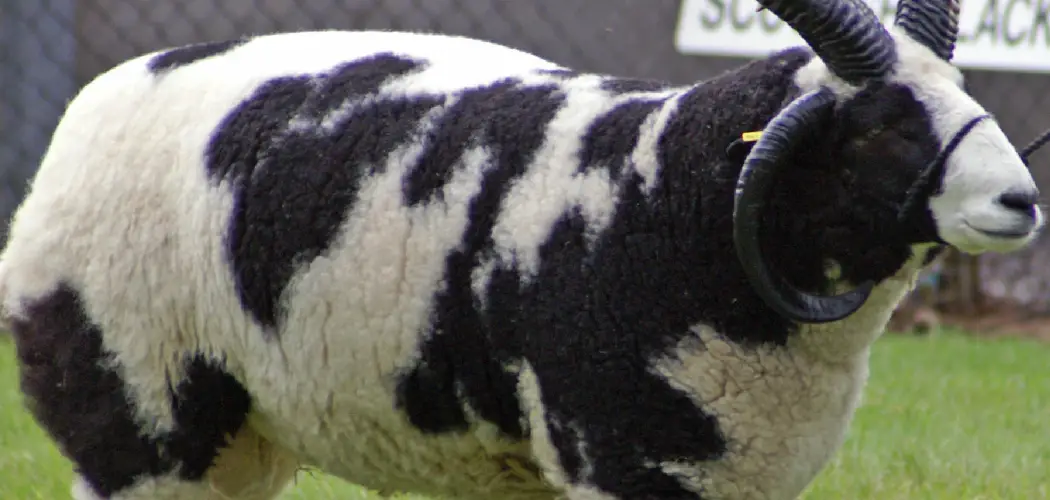Do you ever feel that certain animals represent something more than meets the eye? Jacob Sheep, one of the few remaining breeds of Old Testament sheep, may be doing just that. Shepherds in biblical times relied heavily on these woolly quadrupeds for food, clothing, and—most importantly—spiritual sustenance.
In this blog post, we will explore the Jacob sheep spiritual meaning and their unique role in spiritual connectivity during ancient Israelite and modern-day spirituality. From stories passed down through generations to scientific breakthroughs about the breed’s physical properties, Jacob Sheep has a profound spiritual meaning deeply embedded in its history and habitats that is worth investigating further.
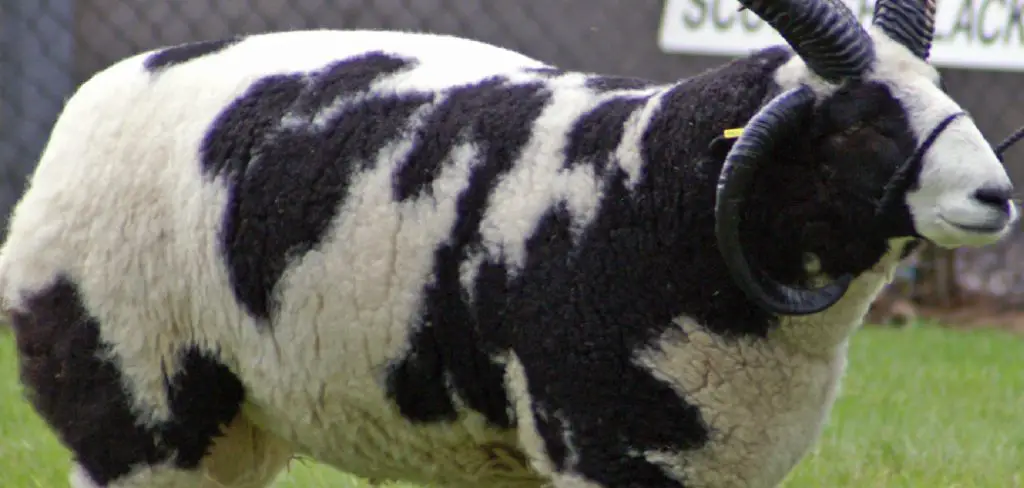
Jacob Sheep Symbolism and Meaning
Jacob Sheep Native American Symbolism
Jacob sheep have become an iconic symbol of Native American culture, known for their unique appearance and rich symbolism. These sheep feature striking black-and-white coloring and twisted horns, making them a standout addition to any herd. But beyond their visual appeal, Jacob’s sheep are significant to many Native American tribes. They represent the balance between light and dark, good and evil, and order and chaos.
For centuries, Jacob sheep have been a significant part of Native American folklore and art and continue to be celebrated today. Whether grazing in the fields or featured in paintings and pottery, these animals serve as a reminder of the complex and nuanced worldview of Native Americans.
Jacob Sheep Eastern Symbolism
Jacob sheep have been associated with various symbols in Eastern cultures for centuries. In India, they are revered for their wool and horns, which are believed to bring good fortune and protection. In China, they symbolize fertility and prosperity and are often depicted in traditional paintings and calligraphy.
The distinctive markings on Jacob sheep, with their black and white patches and asymmetrical horns, have also been linked to spiritual and mystical significance across different cultures in the Middle East and Africa. These esteemed representations of the Jacob sheep highlight the animal’s remarkable presence and serve as a testament to its enduring legacy in art and spirituality.
Jacob Sheep Christianity Symbolism
Jacob Sheep, which have a unique piebald coat, have been bred for centuries and are commonly found in Christian history and symbolism. In the Old Testament, Jacob was the third patriarch who inherited Abraham’s covenant and owned a herd of speckled and spotted sheep. It’s believed that these Jacob Sheep represent the flock Jacob once owned and symbolize the connection between God’s covenant with Abraham and the future salvation through Jesus Christ.
The piebald pattern of the sheep is said to represent the righteous and unrighteous people who make up God’s flock. Additionally, the sheep’s horns are thought to symbolize strength and power, while the sheep’s wool represents purity and sacrifice. In summary, the Jacob Sheep’s significance in Christianity goes beyond its physical appearance and is a reminder of God’s covenant and salvation plan.
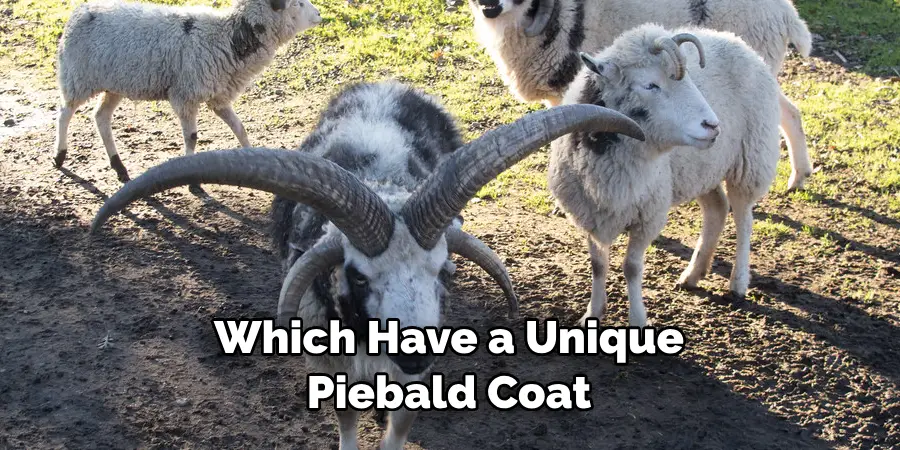
Jacob Sheep Celtic Symbolism
The Jacob Sheep may look like any other common farm animal, but they have a history rooted in Celtic symbolism. These sheep are named after the biblical story of Jacob, who was promised a flock of sheep with distinct markings. The Jacob Sheep were believed to have been brought to Celtic Britain during the Bronze Age and were revered by the Celts for their iconic horns.
In Celtic mythology, the ram is seen as a symbol of power and strength, which is why the Jacob Sheep were considered spiritual animals. These sheep can still be seen grazing on farms and are a living reminder of the ancient Celtic culture that once thrived in Britain.
Jacob Sheep African Symbolism
The Jacob sheep’s captivating beauty and rich history cannot be overstated, especially regarding the animal’s symbolic significance in African culture. Since ancient times, the unique markings of the Jacob sheep’s fleece have been revered and interpreted in various ways across African communities. For some tribes, the four horns of the Jacob sheep represent strength and power.
Others see the sheep’s distinctive black and white spots as a reminder of the universe’s balance between light and dark forces. Regardless of how it is interpreted, the Jacob sheep has undoubtedly left an indelible mark on African culture and continues to be a source of wonder and inspiration.
Jacob Sheep Spiritual Meaning
Jacob sheep are a unique breed with an intriguing backstory. These sheep are known for their distinctive spotted and speckled fleece, which symbolizes Jacob’s prosperity in the Bible. The spiritual significance of Jacob’s sheep can be traced back to Jacob’s biblical story, where he had a dream of a ladder connecting heaven and earth.
The dream was interpreted as a message from God, and Jacob was promised that his descendants would spread to all corners of the earth. Today, Jacob sheep are revered for their symbolic spiritual meaning and have become a beloved animal for their wool and ornamental value. Whether you’re a farmer, hobbyist, or animal lover, Jacob sheep are a fascinating breed with a rich spiritual history.
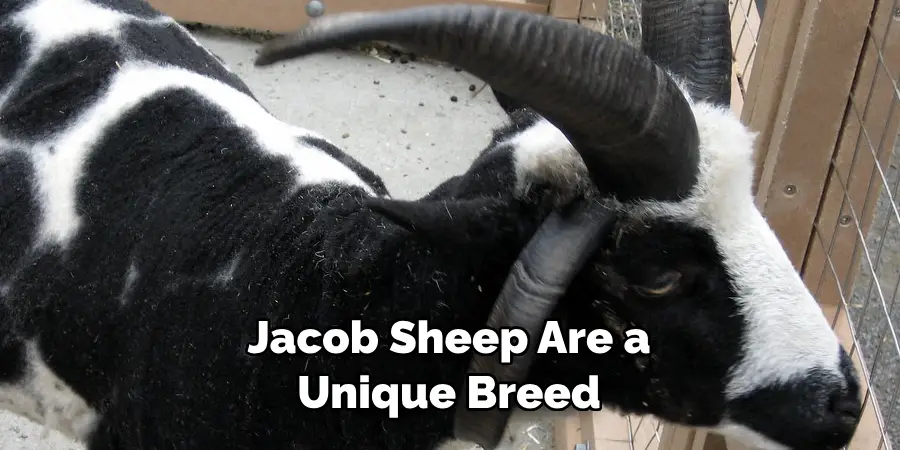
Jacob Sheep in Dreams
Jacob Sheep in Dreams – have you ever dreamt of them? These fascinating creatures, with their striking black and white fleece, seem to have a mysterious allure. Perhaps you’ve seen them in a dream yourself, entering your subconscious and sparking your imagination. Jacob’s sheep are known for their unique appearance and have even been featured in the Bible, where Jacob used them to increase his own flock.
It’s interesting to imagine these animals’ significance when they appear in our dreams. Are they a symbol of prosperity or abundance? Do they represent our need for balance or harmony in our lives? Whatever the meaning may be, it’s clear that the Jacob sheep is a creature that captures our attention – even as we sleep.
Jacob Sheep Encounters and Omens
For centuries, the Jacob sheep have been seen as a symbol of luck, both good and bad, in many cultures. According to folklore, encountering a Jacob sheep on your travels can either signify impending misfortune or a lucky omen. Some shepherds believe that if a Jacob sheep approaches you and bellows, it could warn you of danger or an imminent storm.
Others believe that the appearance of a Jacob sheep in a dream is a sign of good luck and an indication that your wishes will be granted. Whatever your beliefs, there is no denying the mystique and allure of Jacob’s sheep encounters and omens.
Jacob Sheep’s Meaning in Mythology and Folklore
Throughout mythology and folklore, sheep have taken on a variety of symbolic meanings. In particular, Jacob Sheep has been woven into tales and legends as a symbol of hope, renewal, and good fortune. Some believe these distinctive sheep are descended from the biblical flocks that Jacob tended in the book of Genesis, thus imbuing them with special significance.
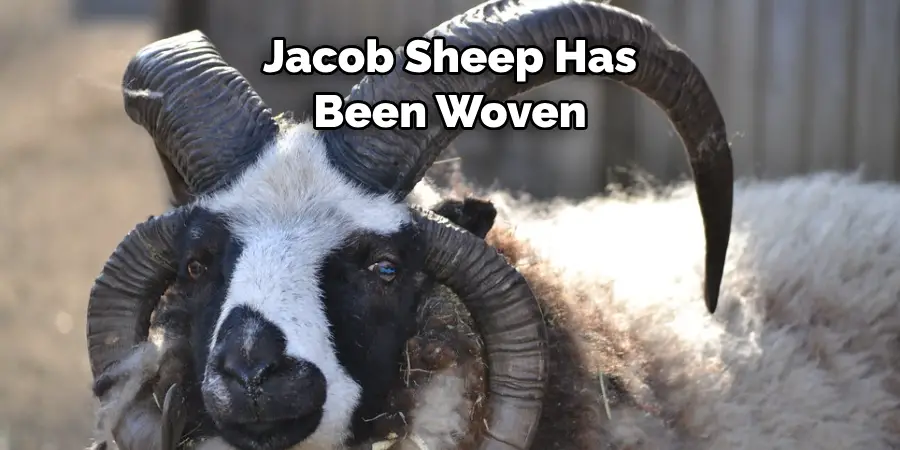
Their unique appearance – with their black and white fleeces and spiral horns – has made them stand out as a symbol of individuality and unity. Whether appearing in fairy tales or religious texts, Jacob Sheep has left a lasting impression on the collective imagination, reminding us of the enduring power of myth and legend.
Jacob Sheep Totem Animal
The Jacob Sheep, with its distinctive horns and spotted fleece, has long been revered as a totem animal. In Celtic mythology, the sheep symbolizes rebirth and renewal, a reflection of the animal’s ability to shed its old wool each year and grow a new coat. Meanwhile, in Native American folklore, the Jacob Sheep is seen as a protector and guide, leading tribesmen through harsh terrain and safeguarding them from harm. Whether as a symbol of new beginnings or as a trusted companion, the Jacob Sheep holds a special place in the hearts and minds of those who honor it as a totem animal.
Jacob Sheep Tattoo Meaning
Jacob sheep tattoos are not only beautiful, but they also harbor deep meaning and symbolism. This ancient breed of sheep has been around for thousands of years, and its unique horn configuration has earned it a special place in history and mythology. The distinctive markings on the fleece of the Jacob sheep have also become a popular design element in tattoos, with many people choosing to ink themselves with the animal’s striking patterns.
For those who choose to get a Jacob sheep tattoo, the design typically represents strength, resilience, and a connection to the natural world. It’s a powerful reminder of the power of nature and the vital role that animals play in our lives and culture. Whether you’re a farmer, an animal lover, or simply drawn to the visual appeal of the Jacob sheep, this tattoo is a meaningful way to express your values and beliefs.
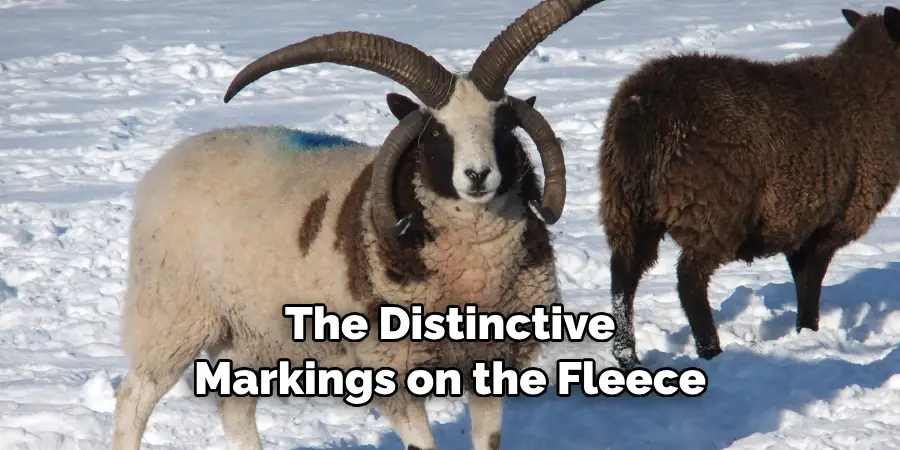
Conclusion
With all there is to know and appreciate about Jacob Sheep, it is even more interesting that they also carry a spiritual meaning. Their longstanding history is enveloped in the symbolism of faith, fertility, reproduction, protection, and abundance. To experience the spiritual connections with the Jacob sheep on your own terms and gain insight into its deeper meaning from the Bible, consume the Holy Scriptures to discover its strength.
Investigate more about Jacob Sheep by talking to a pastoral care worker or research online for a deeper understanding of why God chose them as His signpost for foreigners back in the day – to remind us of His love and grace.
And don’t forget to observe them peacefully while dreaming of God’s protection and promise of blessings so abundant they will overflow like no other! Allow yourself to practice gratitude for their immense gifts long after you’ve read this post. Welcome these precious animals into your life. You won’t regret it! Thanks for reading our post about the jacob sheep spiritual meaning.
You can Check it Out Pygmy Goat Spiritual Meaning, Symbolism and Totem

